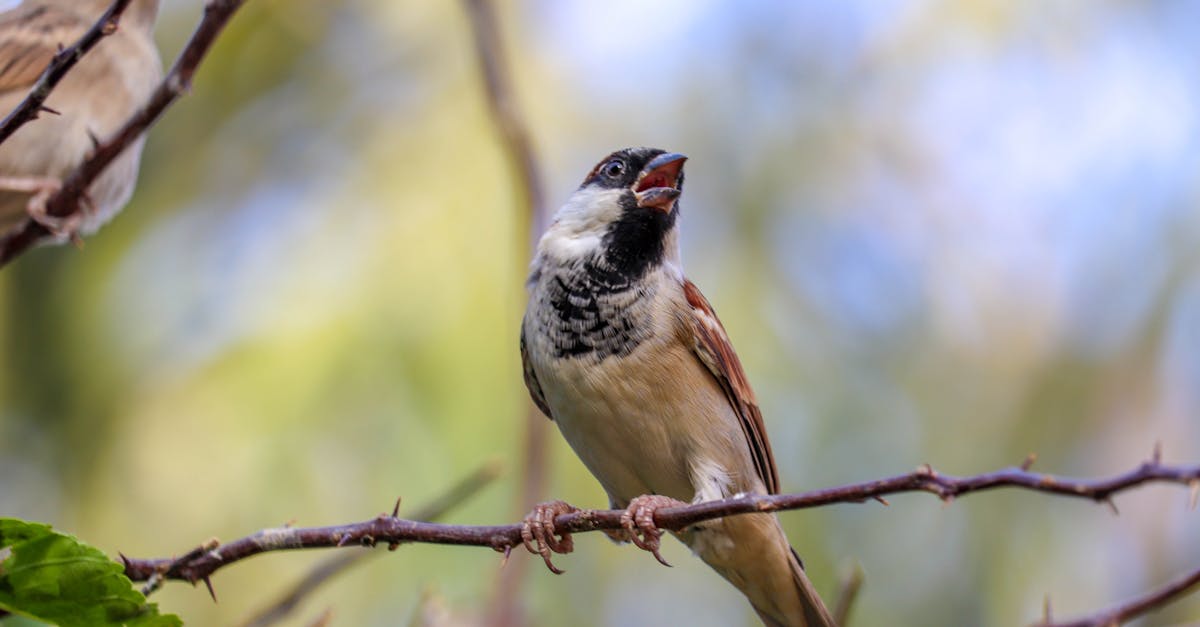Birds are often associated with the bright light of day, filling the air with their melodious songs as the sun rises. However, many people are surprised to learn that some birds chirp at night. This unusual behavior can be intriguing and raises questions about why these feathered creatures take to the night sky with their songs. In this article, we will explore the reasons behind nighttime chirping and delve into the fascinating world of nocturnal birds.
| Reason | Description |
|---|---|
| Mating Calls | Many male birds chirp at night to attract females. |
| Territorial Defense | Nighttime songs can serve to establish territory. |
| Predator Alarm | Chirping can signal the presence of predators. |
| Social Interaction | Some birds chirp at night to communicate with other birds. |
| Food Availability | Chirping can indicate areas where food is plentiful. |
| Artificial Light Influence | Urban areas can disrupt natural rhythms, causing night chirping. |
| Species-Specific Behavior | Some species are naturally nocturnal or crepuscular. |
Mating Calls
One of the primary reasons birds chirp at night is to attract mates. During mating season, male birds often sing to showcase their health and vitality. Nighttime chirping allows them to stand out in the darkness, as the sounds can carry further than during the day. The songs are often more pronounced at night, which can help potential mates locate them amidst the stillness of the night.

Territorial Defense
Nighttime songs can also serve as a means of establishing and defending territory. Male birds will chirp to announce their presence and assert dominance over a specific area. This behavior is particularly common in species that are active during twilight hours. By singing at night, birds can deter intruders and maintain their claim over their chosen habitat.

Predator Alarm
Chirping can act as a warning signal among birds, alerting others to the presence of predators. Nighttime chirping serves as a form of communication that can help keep the flock safe. When one bird detects a predator, it may begin to chirp, prompting others to be on high alert and take necessary precautions. This communal behavior is vital for survival in the wild.

Social Interaction
Birds are social creatures, and nighttime chirping can facilitate interaction among them. Some species may chirp at night to communicate with their flock members, reinforcing social bonds and maintaining group cohesion. This social behavior can be particularly evident in urban settings where birds may encounter one another more frequently at night.

Food Availability
In some cases, nighttime chirping can indicate areas where food is abundant. Birds may sing to signal to others that they have found a good foraging spot, thus encouraging their companions to join them. This behavior can be especially beneficial in environments where food sources fluctuate throughout the day and night.

Artificial Light Influence
The presence of artificial light in urban areas can disrupt the natural behaviors of birds. Streetlights and other forms of illumination can confuse birds, leading them to chirp at night when they would typically be resting. This phenomenon is often referred to as “light pollution” and can have significant impacts on bird behavior, including increased nocturnal activity.

Species-Specific Behavior
Some bird species are naturally nocturnal or crepuscular, meaning they are active during twilight and nighttime hours. These species have adapted to thrive in low-light conditions and often engage in vocalizations during these times. Examples include owls and certain types of nightjars, which have evolved to exploit the unique ecological niches available at night.

FAQ
Why do some birds chirp all night long?
Some birds, particularly those that are nocturnal or crepuscular, may chirp throughout the night as part of their natural behavior. This can be related to mating, territory establishment, or social interaction. Urbanization and artificial light can also lead to extended chirping periods as birds adapt to their environment.
Are there specific birds known for chirping at night?
Yes, certain species are known for their nighttime vocalizations. For example, common nightingales and various types of owls are famous for their songs and calls during the night. These birds have adapted to their ecological niches, taking advantage of the reduced competition and unique hunting opportunities that nighttime provides.
How does urbanization affect bird behavior at night?
Urbanization can significantly impact bird behavior, particularly through the effects of light pollution. Artificial lighting can confuse birds, leading to changes in their natural rhythms, including increased nighttime activity and chirping. This can disrupt mating and feeding behaviors, potentially affecting bird populations over time.
References:
1. [USGS: Bird Behavior and Ecology](https://www.usgs.gov)
2. [Audubon Society: Birds at Night](https://www.audubon.org)
3. [Cornell Lab of Ornithology: Nocturnal Birds](https://www.birds.cornell.edu)
